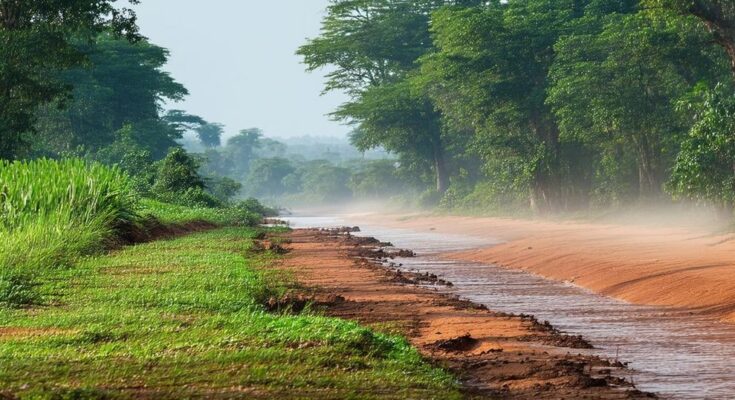The Central African Republic is entrenched in a cycle of underdevelopment, political fragility, and climate change vulnerability. With one of the lowest GDP per capita figures and severe governance issues, the nation faces critical challenges exacerbated by erratic climate conditions. Effective interventions are needed to disrupt this cycle and promote sustainable development.
The Central African Republic (CAR) continues to grapple with a persistent cycle of underdevelopment, state fragility, and climate change vulnerability, as detailed in the Central African Republic Climate and Development Report (CCDR). These interconnected challenges hinder progress and exacerbate economic stagnation and social discord. Economically, CAR remains one of the least developed nations, with an alarming GDP per capita of merely $495 as of 2019. This stark reality is further elucidated by the Human Development Index (HDI), which ranks CAR among the lowest worldwide due to significant deficiencies in health care, education, and living conditions. It is particularly alarming that a child born in CAR today is projected to achieve only 29% of their productive potential under optimal health and education conditions. The poverty rate is pervasive, with about 70% of the populace living below the poverty line. Furthermore, between 2018 and 2021, an overwhelming 90% of households encountered substantial shocks, largely influenced by armed conflict (54%) and climate-related events (27%). Politically, the state of fragility in CAR is underscored by a history of violence and instability that has disrupted governance and social cohesion. Since its independence in 1960, CAR has experienced recurrent conflicts that have degraded governmental capacity and led to societal disintegration. This instability manifests in persistent tensions that often escalate into violence, resulting in significant displacement of communities and the fracturing of societal ties. Moreover, urban areas have not witnessed resilient or inclusive growth, thereby failing to provide safe havens and adequate opportunities for their inhabitants. The environmental context is equally challenging, as over 80% of the CAR population relies on agriculture and forestry, which are particularly vulnerable to climatic changes. The CCDR highlights that shifts in rainfall patterns and the intensification of extreme weather events critically jeopardize both water and food security, as well as the livelihoods of citizens. Reports have documented how erratic weather conditions disrupt agricultural outputs, further exacerbating food insecurity and negatively impacting the national economy. Additionally, CAR’s extensive river systems and lush forest cover are at risk due to climate variability and desertification, threatening vital natural resources. These multifaceted challenges are not isolated; rather, they create an intricate web that perpetuates economic, social, and environmental stagnation. The interrelationship between underdevelopment, political instability, and climate change vulnerability significantly restricts CAR’s capacity to adopt effective resilience measures and adaptation strategies. Governance weaknesses further obstruct robust policy implementation and international collaboration necessary for progress. To break this detrimental cycle, it is essential that CAR adopts a holistic approach that addresses both the underlying causes and the visible symptoms of its multifarious challenges. Comprehensive strategies involving targeted investments, improvements in institutional frameworks, and innovative reforms in policy are crucial. Should this multifaceted approach not be pursued, CAR risks being further entrenched in this cycle, with grave consequences for the well-being of its population and future development prospects.
The Central African Republic is a landlocked country in Central Africa characterized by chronic underdevelopment and instability. With one of the lowest GDPs per capita in the world, CAR faces systemic poverty, governance issues, and climate change impacts that threaten livelihood and sustainability. The CCDR emphasizes the urgent need to analyze these interrelated conditions and devise strategies to enhance resilience and foster sustainable development.
In conclusion, the Central African Republic finds itself in a precarious situation marked by the interplay of severe underdevelopment, fragile governance, and vulnerability to climate change. Addressing these challenges through integrated strategies and collective efforts is crucial for breaking the cycle of stagnation and paving the pathway toward a resilient future.
Original Source: reliefweb.int




